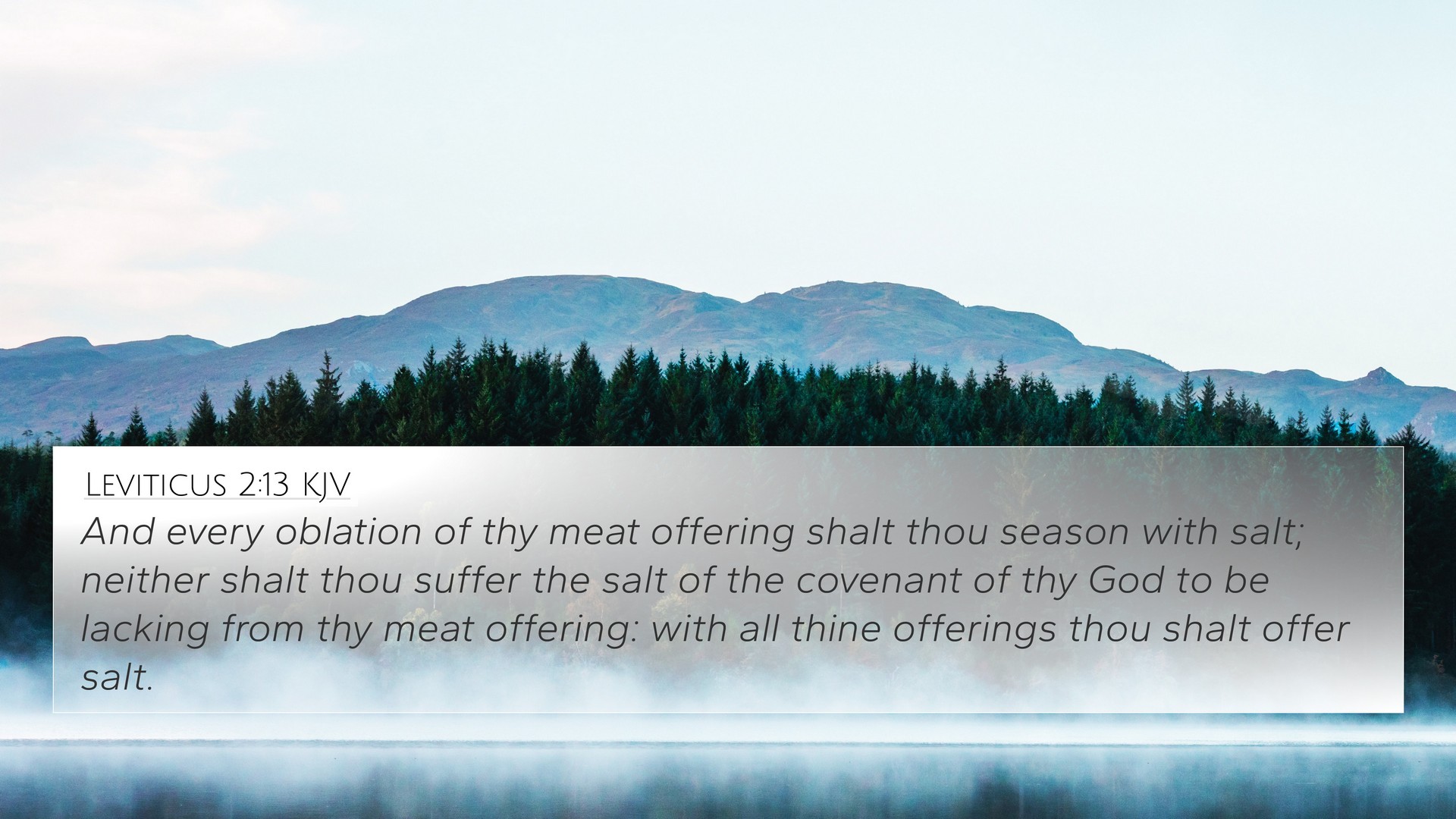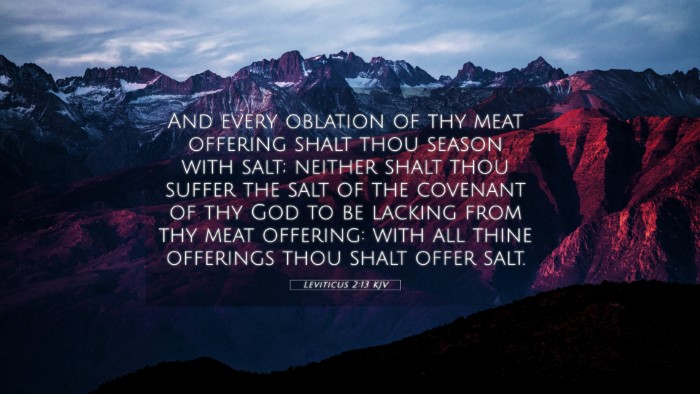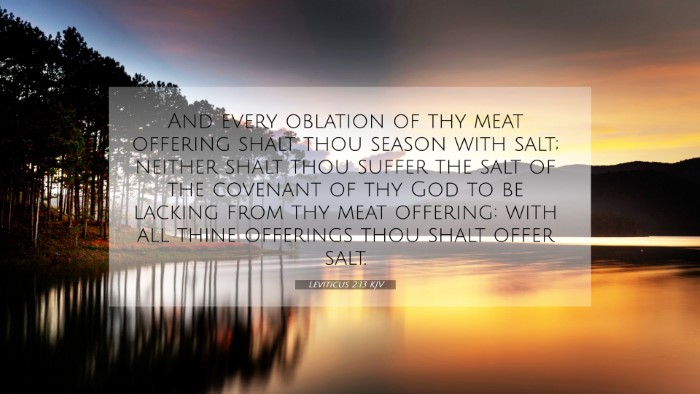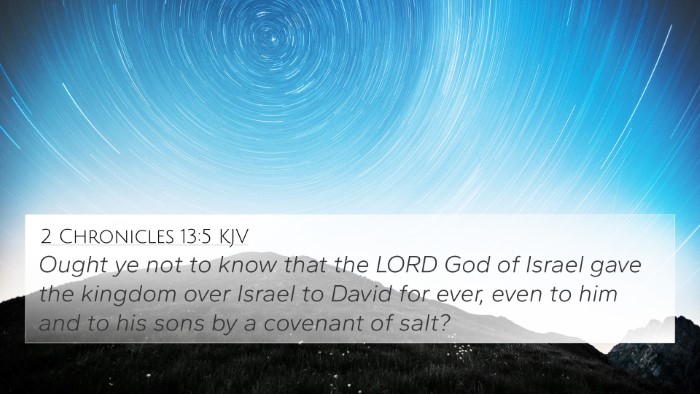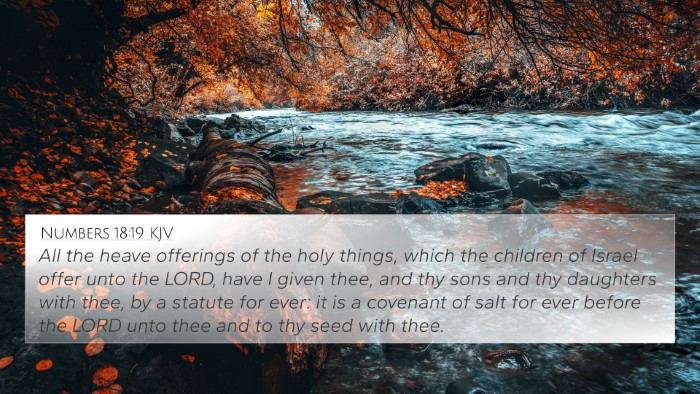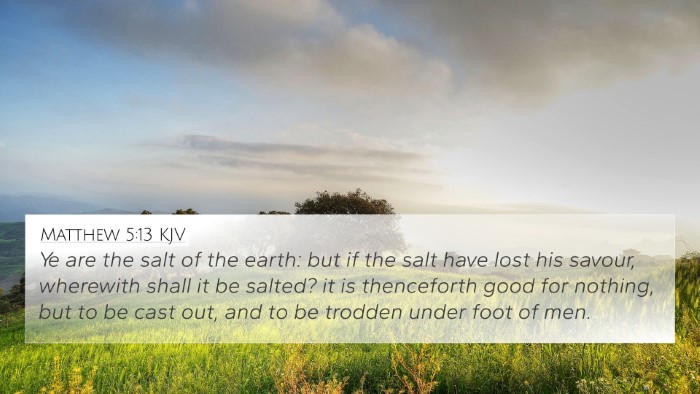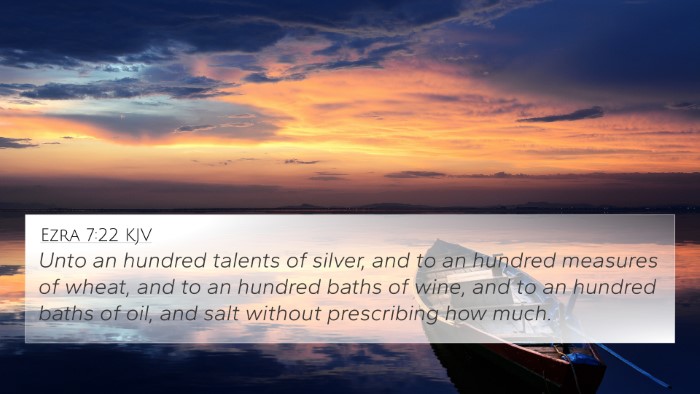Understanding Leviticus 2:13
Leviticus 2:13 states, "And every oblation of thy meat offering shalt thou season with salt; neither shalt thou suffer the salt of the covenant of thy God to be lacking from thy meat offering: with all thine offerings thou shalt offer salt." This verse holds significant theological and ritual implications, particularly concerning the symbolism of salt, offerings, and the covenant relationship between God and His people.
Meaning and Interpretation
The requirement to season every meat offering with salt highlights several key theological themes:
- The Essence of Covenant: Salt is a symbol of permanence and fidelity, exemplifying the enduring nature of God's covenant with Israel. Matthew Henry notes that salt denotes fidelity in a covenant, emphasizing that the offerings given to God must reflect a faithful relationship with Him.
- Preservation and Purity: Salt acts as a preservative. Adam Clarke mentions that the inclusion of salt is a metaphor for the preservation of the people’s faith and morals, suggesting that offerings devoid of salt would symbolize corruption and unfaithfulness.
- Holiness of Offerings: Albert Barnes indicates that offerings made to God must be pure and holy. The command to include salt represents the necessity for believers to present themselves as holy and blameless before God, thus illustrating the need for spiritual purity in worship.
Cross-References and Thematic Connections
Leviticus 2:13 connects with various other scripture passages that enhance its understanding:
- Exodus 30:34-35: Discusses the use of salt in incense preparations, signifying its importance in sacred worship.
- Numbers 18:19: Mentions the covenant of salt, reinforcing the longstanding fidelity between God and the Levites.
- Mark 9:50: Jesus brings forth the idea that "salt is good," further underlining its characteristics tied to preservation and purity in a spiritual context.
- Colossians 4:6: Encourages believers to let their speech be "seasoned with salt," linking the metaphorical use of salt in interactions among believers.
- 2 Chronicles 13:5: Cites a covenant described as a "covenant of salt," illustrating God's permanent promises to His people.
- Matthew 5:13: Jesus tells His disciples that they are the "salt of the earth," alluding to their role in promoting righteousness.
- Luke 14:34-35: Discusses the preservation quality of salt, akin to the preservation required in believers' lives.
- Leviticus 1:13: Further elaborates on how sin offerings are to be handled, reflecting back to the conditions prescribed for meat offerings.
- Ezekiel 43:24: Discusses offerings made with salt, emphasizing continuity of God's instructions regarding sacrifices.
Application in Today’s Context
Understanding Leviticus 2:13 encourages believers to:
- Maintain Faithfulness: Just as salt symbolizes fidelity in covenants, Christians are reminded to uphold their commitments to God and others.
- Pursue Purity: The need for 'salty' offerings is a call to purity in worship and lifestyle, urging believers to live according to God’s standards.
- Engage in Generous Offering: Offering salt with all sacrifices serves as a reminder that generosity should characterize followers of Christ, with offerings reflecting love and commitment.
Tools for Cross-Referencing
To delve deeper into biblical connections and understand the full scope of scriptural unity, several tools can be used:
- Bible Concordance: This tool helps locate passages and their thematic connections across scripture.
- Bible Cross-Reference Guide: Offers a structured way to explore similar topics and themes across the Bible.
- Bible Reference Resources: These materials aid in understanding contextual and historical background behind verses.
Conclusion
Leviticus 2:13 serves as a significant reminder of the importance of salt in the context of Israel's covenant relationship with God, interwoven with themes of purity, faithfulness, and holiness in offerings. By exploring its cross-references, believers can enrich their understanding and application of this verse in their spiritual life, emphasizing the perpetual truth of God's expectations in worship.
